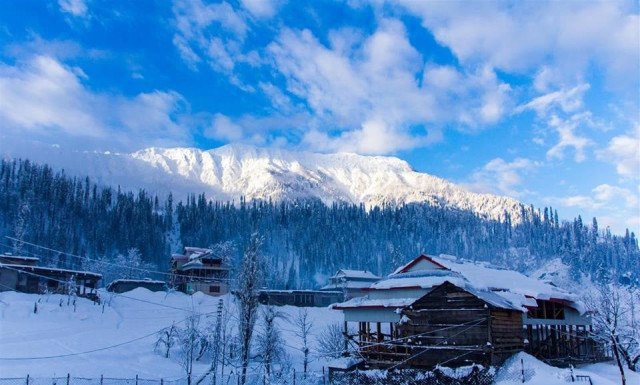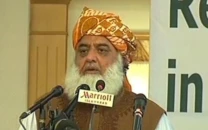Winter in Kashmir: Power cuts amid freezing temperatures
The writer is a freelance columnist.

Kashmiris are facing severe power cuts amid freezing temperatures of minus -15.93 °C with a further drop at night. These power outages have created significant challenges for the residents of Kashmir, whose daily lives, businesses, and education heavily depend on a reliable power supply.
The prolonged power cuts have not only disrupted day-to-day routines but also worsened the difficulties faced by the business community and students, highlighting the failures of the Modi regime's claims of progress and development.
The power cuts are particularly harsh in rural areas, where people depend on electricity for basic needs such as heating and lighting. This has led to widespread inconvenience and hardship. With no power, people are left vulnerable to the extreme cold, especially the elderly, children, and those with chronic illnesses, heightening the risk of hypothermia and other serious health issues for them.
Businesses, especially small businesses, are also struggling to operate due to the power cuts, which eventually resulted in job losses and economic hardship. The ongoing power outages have also had a detrimental impact on students. They are unable to study properly, as their homes remain cold and dark during the critical hours of study. This disruption threatens their academic performance and in turn their future prospects.
These power cuts are exacerbating the already tense situation in Kashmir, triggering frustration and anger among the people. According to the Kashmir Power Development Company, Kashmir is receiving just 1,500 megawatts (MW) of power against a demand of 2,500 MW”. Residents across various localities, especially those from Bandipora, have voiced their frustration over what they describe as unrelenting power cuts.
However, the challenge is not just restricted to Bandipora; numerous other regions across Jammu and Kashmir are also facing similar issues. According to the power department, the Bandipora division has only 93 MW of agreeable load capacity, but the current demand stands at 163 MW, leading to inevitable energy deficits.
The valley of Kashmir confronted similar problems during last year’s winter season as well; however, the authorities remained indifferent. Instead of doing some groundwork to address the power shortage issue, the Indian authorities remained busy in crushing dissident voices.
Clearly, the development and provision of basic necessities to Kashmiris is not on their priority list. Kashmiris have repeatedly expressed their frustration over the continued and unscheduled power cuts that have crippled their daily life. It wouldn’t be wrong to say that the power cuts in Kashmir have now turned into a humanitarian crisis.
The Indian government needs to take urgent steps to address the power crisis in Kashmir, especially during the harsh winter month



















COMMENTS
Comments are moderated and generally will be posted if they are on-topic and not abusive.
For more information, please see our Comments FAQ